Its origins are almost impossible to pinpoint. HBO’s Succession certainly inspired it, but this is a concept refined and proliferated through social media. “Quiet Luxury” entered the zeitgeist last year, and in the intervening 12 months, its popularity has only grown.
It’s a simple idea loaded with intention. Products that embody it are those of exceptional cost and quality, usually from storied brands, that purposely conceal their value through simple and thoughtful design. It’s a subtle flex taken to extremes, allowing even the wealthiest to blend in seamlessly. Because, when you’ve got it like that, not all attention is good.
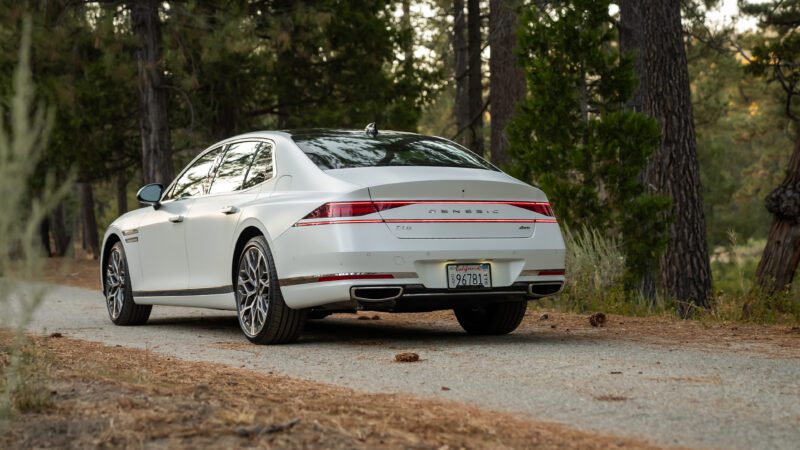
However, despite its simplicity, the concept doesn’t easily translate to the automotive world. Cars either are luxury items, proudly brandishing the fact, or they’re not. The Genesis G90 certainly falls under the former. It may start at $90,450, but the range-topping model I’ve been driving costs $102,250. It’s a full-size luxury sedan through and through, gunning for the Mercedes-Benz S-Class and the BMW 7-Series, equipped with the necessary tech, quality materials, and refinement to take them on. Why, then, is “Quiet Luxury” still the best way I can describe it?
Before I argue why the Genesis G90 is “Quiet Luxury,” here’s why the S-Class and the 7-Series are not. It’s simple. They’re too recognizable. As much as we’d like to think that optioning one in a black-over-black configuration will allow it to blend in, there’s no hiding that you’re driving some of the most expensive cars produced by two popular premium brands. They’ve been around too long, each outselling their Korean competitor by an order of magnitude. Their status as luxury symbols is undisputed, and crucially, even those who couldn’t care less about cars can identify them as the expensive machines they are.
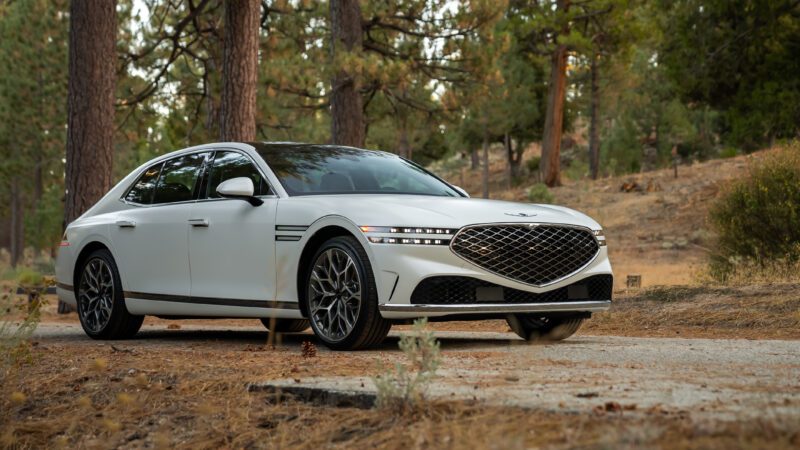
In contrast, Genesis is still building its brand cache amongst luxury buyers, who frequently refuse to shell out for untested names. 2020 was a pivotal year for the carmaker as it introduced the second-generation G80 Sedan and the GV80 SUV. Two products that represented a major upmarket push, offering vastly improved interior quality and styling while retaining a focus on value.
The second-gen G90, the current model, made an even greater leap in those areas. Like the Germans, it employs an excellent air suspension system that delivers a plush ride. Its cabin is completely wrapped in Nappa leather, with contrasting metal finishes and optional wood trim available. It’s even good-looking, with an undeniable presence.
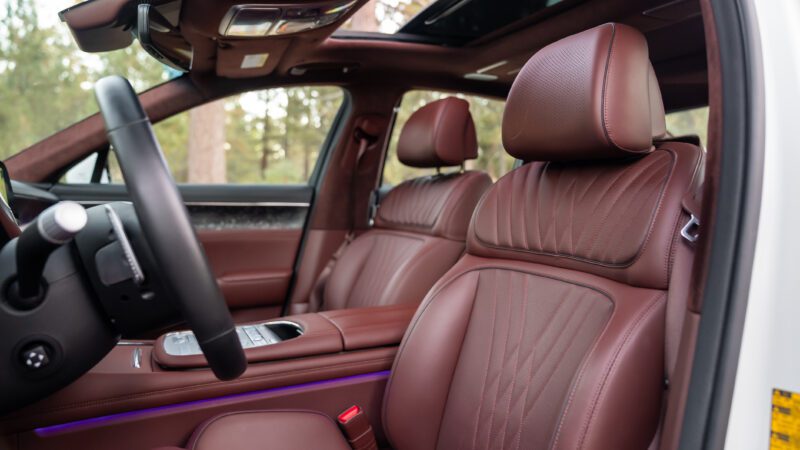
However, as competitive as the Genesis G90 is on paper, it’s still not recognizable to those not in the know. If an item representing “Quiet Luxury” is high quality with good design that can seamlessly blend in, that’s the G90.
This lack of recognition is attributable to the simple fact that there aren’t many G90s out in the wild. While a full-size luxury sedan will never be a best-seller, the aforementioned S-Class, 7-Series, the Audi A8, and even the dated Lexus LS all outsell the Genesis. It’s a self-fulfilling prophecy. In time, however, this will likely change. While the G90 is the product of a brand still on the rise, this sedan’s merit is undeniable. It rides like a six-figure car, looks like one, and crucially, is built using the right materials.
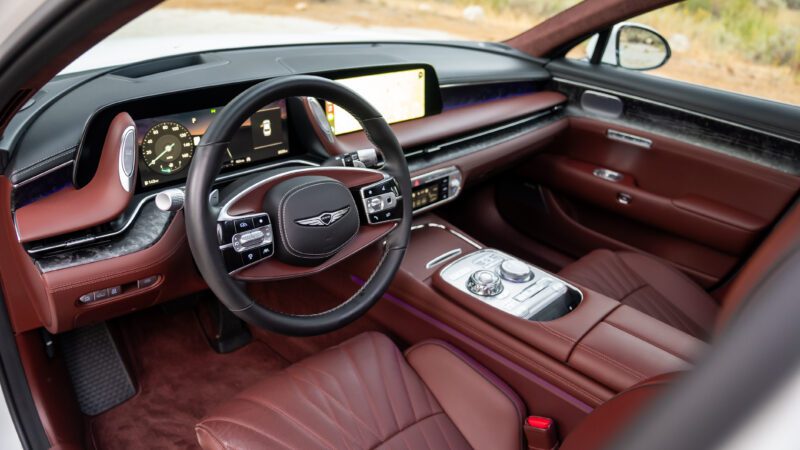
Let’s revisit its price for a moment. The G90 considerably undercuts its two main rivals, and its standard equipment would easily cost five figures added to a Benz or BMW. However, while the Genesis costs less, there are things it doesn’t do quite as well. Its suite of safety systems and driver assist features is expansive but also particularly sensitive, shouting early warnings galore.
Its most potent engine configuration, a complex, mild-hybrid, supercharged, and twin-turbocharged 3.5-liter V6, only produces 409 horsepower and 405 pound-feet of torque. In a car that tips the scales at 5,149 pounds, that is, to use a professional term, not a lot. Compared to its rivals, it doesn’t feel nearly as responsive or powerful behind the wheel, with powertrain delays being a common occurrence.
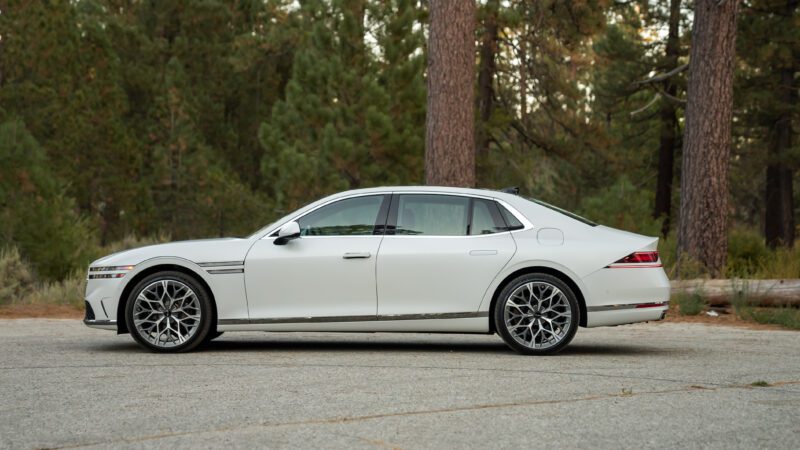
For a nameplate that has yet to turn ten, that’s a fairly short list of cons, especially when it’s battling icons that have been around for 47 years in the case of the 7-Series and 70 for the S-Class. We can’t forget the leaps the Korean carmaker has already made regarding quality and refinement. It’s only a matter of time before it makes another, finally breaking into the luxury mainstream.
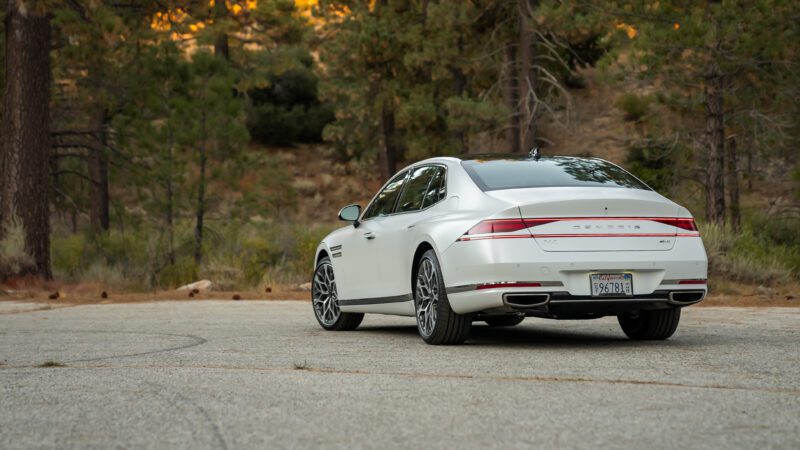
Yet, therein lies the elephant in the room: intention. The Genesis G90 might be “Quiet Luxury,” but it’s not trying to. This is a car built to be the very best it can be, gunning for the full-size luxury world’s top spot. This starkly contrasts products designed to embody the trend, pricey pieces whose sole purpose is to blend in. As such, while the Genesis G90 currently offers a full-size limo for those who want to forgo the attention without sacrificing a luxury experience, chances are the concept won’t apply for long.


